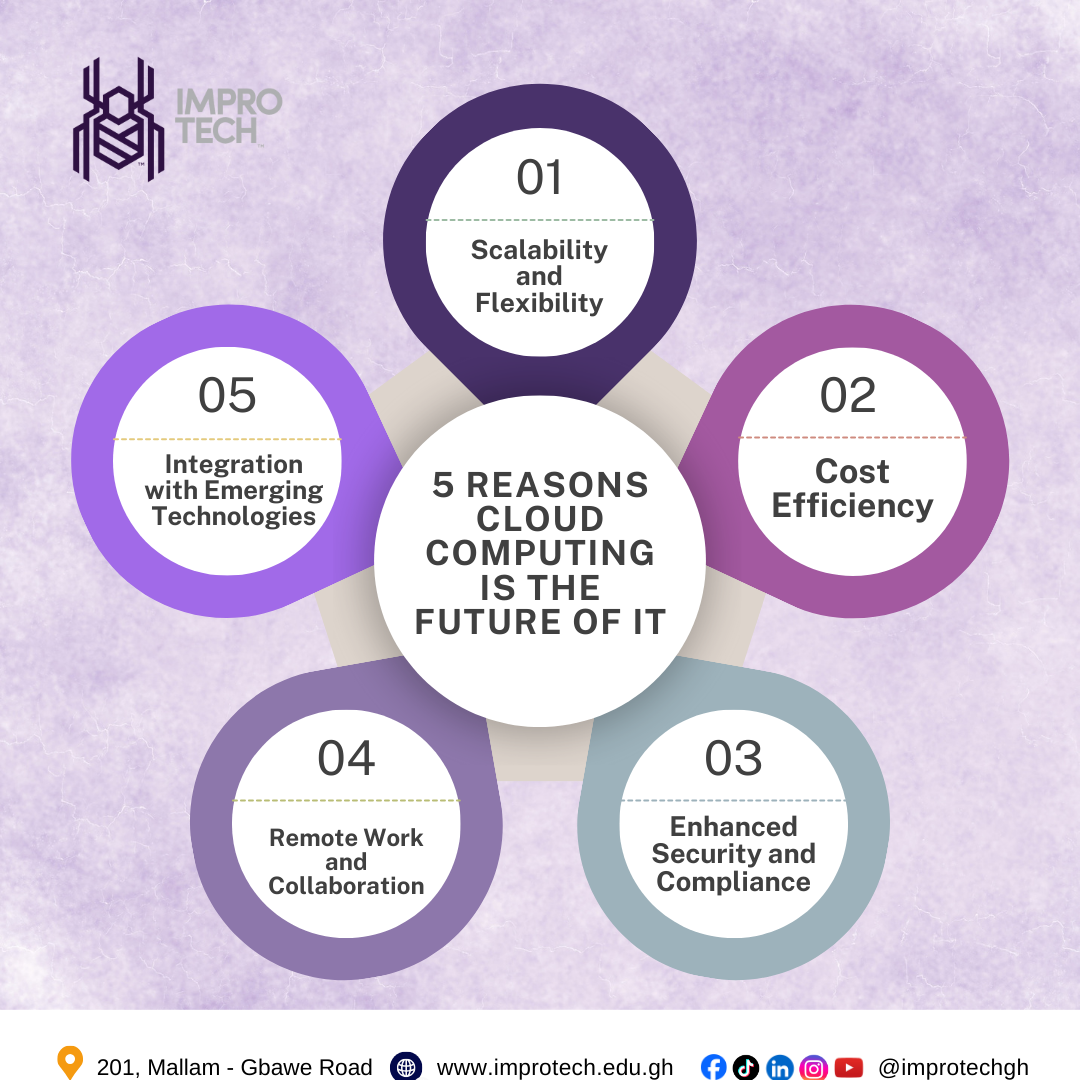

Cloud computing has revolutionized the IT industry, transforming how businesses store, access, and manage data. As technology continues to evolve, cloud computing is proving to be the foundation of the future of IT. Here are five key reasons why cloud computing is shaping the future of the industry:
One of the most significant advantages of cloud computing is its scalability. Businesses no longer need to invest heavily in physical infrastructure. Instead, they can scale their resources up or down based on demand, ensuring cost-effectiveness and efficiency. This flexibility allows companies to adapt quickly to market changes and business growth without significant upfront costs.
Cloud computing reduces the need for businesses to maintain expensive hardware and software. By leveraging cloud services, organizations can shift from a capital expenditure (CapEx) model to an operational expenditure (OpEx) model, paying only for the resources they use. This cost efficiency is particularly beneficial for startups and small businesses that may have limited IT budgets.
With cyber threats on the rise, security is a top concern for businesses. Cloud service providers invest heavily in security measures, including encryption, multi-factor authentication, and regular security updates. Additionally, many cloud providers comply with industry regulations such as GDPR, HIPAA, and ISO standards, ensuring that businesses meet compliance requirements without the need for extensive in-house security expertise.
The shift to remote work has highlighted the importance of cloud computing in enabling seamless collaboration. Cloud-based tools like Google Workspace, Microsoft 365, and cloud storage services allow employees to work from anywhere, share files in real-time, and communicate effectively. This accessibility fosters productivity and ensures business continuity, even during unforeseen disruptions like pandemics or natural disasters.
Cloud computing is the backbone of emerging technologies such as artificial intelligence (AI), machine learning (ML), and the Internet of Things (IoT). Businesses can harness the power of cloud-based AI and analytics to gain insights, automate processes, and improve decision-making. As more industries adopt these technologies, the demand for cloud services will continue to grow, solidifying its role in the future of IT.
Cloud computing is not just a trend, it is the future of IT. Its scalability, cost efficiency, security, remote accessibility, and integration with cutting-edge technologies make it an indispensable tool for businesses worldwide. As organizations continue to embrace digital transformation, cloud computing will remain at the forefront, driving innovation and efficiency in the IT landscape.